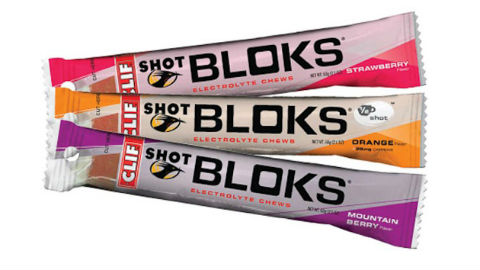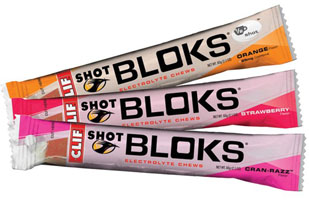 Joel Enoch is one of the UK’s leading sport scientists and motivational speakers, renowned for a straightforward approach that aims to demystify nutrition. His MSc in Nutrition from Bristol University and BSc Sport Science in coaching from Brunel University lead to his passion for ‘deconstructing sports nutrition’, goal-setting and endurance training. Cyclo caught up with Joel at this year’s Triathlon Show and, in the first of a two-part interview, we talk mix-messages, scientific studies and, of course carbohydrates (with just the right dash of protein…)
Joel Enoch is one of the UK’s leading sport scientists and motivational speakers, renowned for a straightforward approach that aims to demystify nutrition. His MSc in Nutrition from Bristol University and BSc Sport Science in coaching from Brunel University lead to his passion for ‘deconstructing sports nutrition’, goal-setting and endurance training. Cyclo caught up with Joel at this year’s Triathlon Show and, in the first of a two-part interview, we talk mix-messages, scientific studies and, of course carbohydrates (with just the right dash of protein…)
Cyclo: As far as nutrition goes, do things really have to be complicated?
Joel Enoch: No, I think it’s fairly simple; most of the complexities about nutrition come from implementing it in day-to-day life and getting the timing right, and, of course, getting the right amounts of protein and carbohydrates and fats.
In theory it should all be quite straight forward – if you are doing most of your training at the weekend and Monday to Friday, nine to five, you have a nice structure, then it’s quite easy to implement all those things.
Cyclo: Then why do you think so many people seem to get it wrong?
Joel Enoch: Well, where it falls down is that there are just so many mixed messages about food and nutrition and hydration; people don’t get a clear message about what they need to consume and when they need to consume it. It’s all to do with education and helping people understand the basics of nutrition – that’s what they need to get right.
Cyclo: And the nutrition industry has a tendency to over complicate things too…
Joel Enoch: In industry there is lots of marketing of course, and they push different aspects of nutrition – so it’s very easy to get caught up in ‘Do I go high carbohydrate?’ ‘Do I go high protein?’ ‘Is high-fat good?’ ‘Is low-fat good?’ Someone, somewhere is pushing any one of those things…
One of the biggest companies that currently operate in the UK market has an entire campaign that’s based on the findings of one person in one study. But because that is an actual result they can use that in terms of marketing; obviously it’s not indicative of the improvement of, say, performance that everyone might get – actually it’s not even indicative of the improvement in performance of the all the people in that study got, its just the best result for one person…
Cyclo: The sheer volume of studies – large and small – probably doesn’t help?
Joel Enoch: Sure, there are so many studies – and scientific studies can be extremely useful – but the problem is they (manufacturers or brands) only ever look at one particular aspect. So when someone reads up on the science they will see one study that says this particular aspect of nutrition is important and then they will read another study that says exactly the opposite… It’s very difficult if you haven’t had the experience or the knowledge base to mesh all of those things together and see where the truth lies in it.
Cyclo: As an example, the addition of protein to carbohydrate seems to be a common area of confusion…
Joel Enoch: We come back to how you read science on this. There are studies out there that show if you add protein to a carbohydrate sports drink during exercise you will have an improvement in performance; the issue with that is that in every study that has shown an improvement in performance there has also been an increase in calories in that sports drink…
So, they took two normal sports drinks, added protein to one and not to the other and the one that had protein added to it – and therefore also had calories added to it – gave an improvement in performance. That’s indicative of the similar improvement in performance you get if you added different types of carbohydrates to one of those drinks – just adding more calories and therefore getting a little bit more of an effect.
Cyclo: Does that mean there’s no real benefit?
Joel Enoch: There is no current evidence in the (scientific) literature that shows the addition of protein to a sports drink will aid performance. However, if I was speaking to someone who was doing some sort of multiday stage race – so competing day on day on day – or lets say on a training camp where they are going to be training two or three times day every day with greater intensity, then I might say add a little protein to your drink that way your recovery strategy is staring during your session.
Also perhaps just that little bit of protein is going to inhibit protein muscle breakdown in the body and aid performance later down the road. That little difference could be enough to see them through the week or multi-day event and stave off injury. So there is an application for it but I think it’s really only once you get to intensive multiday training or racing. So certainly not really the improvement that is sometimes suggested…
Cyclo: But not detrimental?
Joel Enoch: There’s nothing I’ve read to suggest it could be detrimental – if it’s something that people find is useful then it is; anecdotal evidence is just as powerful as scientific evidence with enough people finding enough of a change. Quite possibly some psychological advantages too… The same goes for carbohydrates, taking it switches on little sensors in the brain and you feel a bit more positive, but that’s an effect you don’t get from artificial sweeteners…
 In addition to Joel’s work as a sports scientist he is also an accomplished triathlete having raced in three European Age Group Championships (2008, 2009, 2010) two World Age Group Championships (2009, 2010), and domestic Elite races including London and Blenheim. His sponsors include Clif Bar (read our Clif Bar review here), 2Pure, Nine Point Nine, claireLOGIC Ltd, Kurt Kinetic, Orca UK, POC Sports and Zoggs. For more information on Joel’s work see joelenoch.com
In addition to Joel’s work as a sports scientist he is also an accomplished triathlete having raced in three European Age Group Championships (2008, 2009, 2010) two World Age Group Championships (2009, 2010), and domestic Elite races including London and Blenheim. His sponsors include Clif Bar (read our Clif Bar review here), 2Pure, Nine Point Nine, claireLOGIC Ltd, Kurt Kinetic, Orca UK, POC Sports and Zoggs. For more information on Joel’s work see joelenoch.com
Part Two of our interview with Joel online here.


